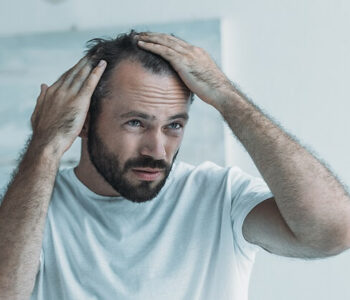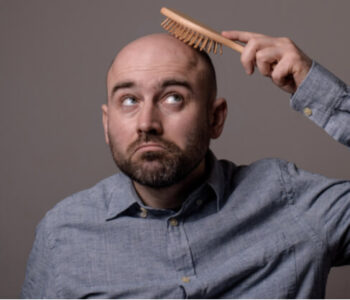In 30 seconds
Minoxidil is a medication licensed by the FDA to treat male pattern baldness. As the active ingredient in Regaine and Rogaine, Minoxidil works by improving blood flow to hair follicles, increasing oxygen and nutrient delivery to promote hair regrowth.
As a safe, scientifically-proven treatment, Minoxidil is available in a few different forms including an easy-to-use foam. Using Minoxidil regularly as part of a daily routine, together with Finasteride, is the most effective treatment for male pattern hair loss.
Minoxidil foam for hair loss
By the age of 50, 85% of us will have significant signs of thinning hair. For many, those signs come much sooner and can bring feelings of frustration, shame, and loss. The vast majority of hair loss cases are due to something called androgenic alopecia, or male pattern baldness. For many, it can feel like a losing battle against patchy hair loss, general thinning and receding hairlines.
But it doesn’t have to be this way.
There’s an increasing number of treatment options, ranging from shampoos and hair vitamins to natural remedies and Finasteride, giving new hope to hair loss sufferers around the world.
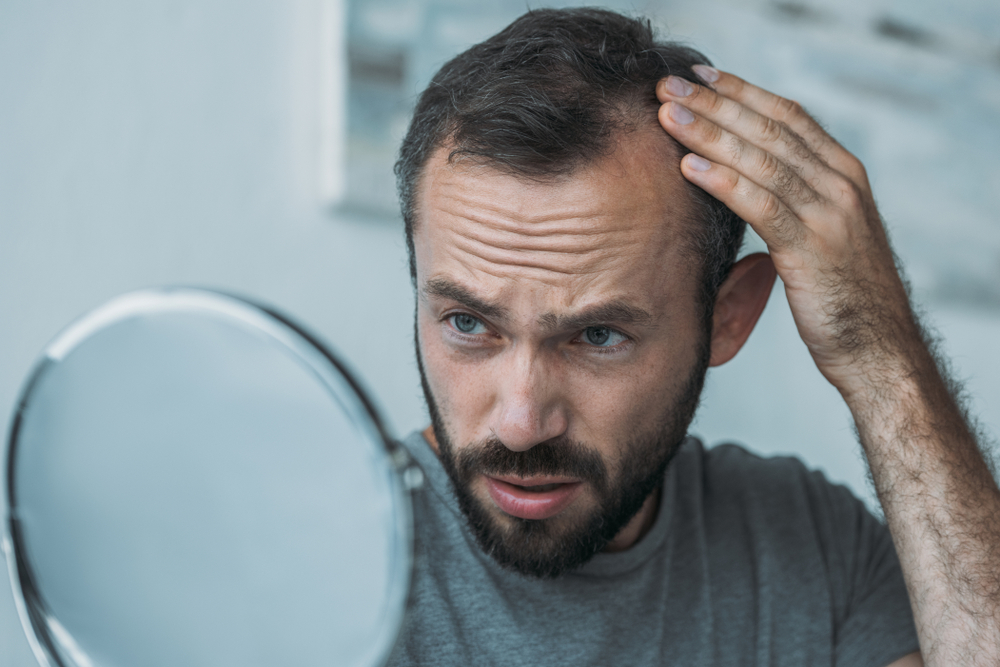
Among the growing list of treatments, there are a handful backed by evidence and officially approved. One of the most promising is a treatment called Minoxidil, available as a spray or foam to stop hair loss and promote hair regrowth.
In this article, we review the basics of Minoxidil foam: how does it work? Is it effective? And how can you use it to combat the effects of male pattern hair loss?
How does Minoxidil work?
Minoxidil acts as a vasodilator, meaning it widens (or dilates) the blood vessels in the scalp, promoting healthy blood flow and encouraging the movement of nutrients and oxygen to your hair follicles.
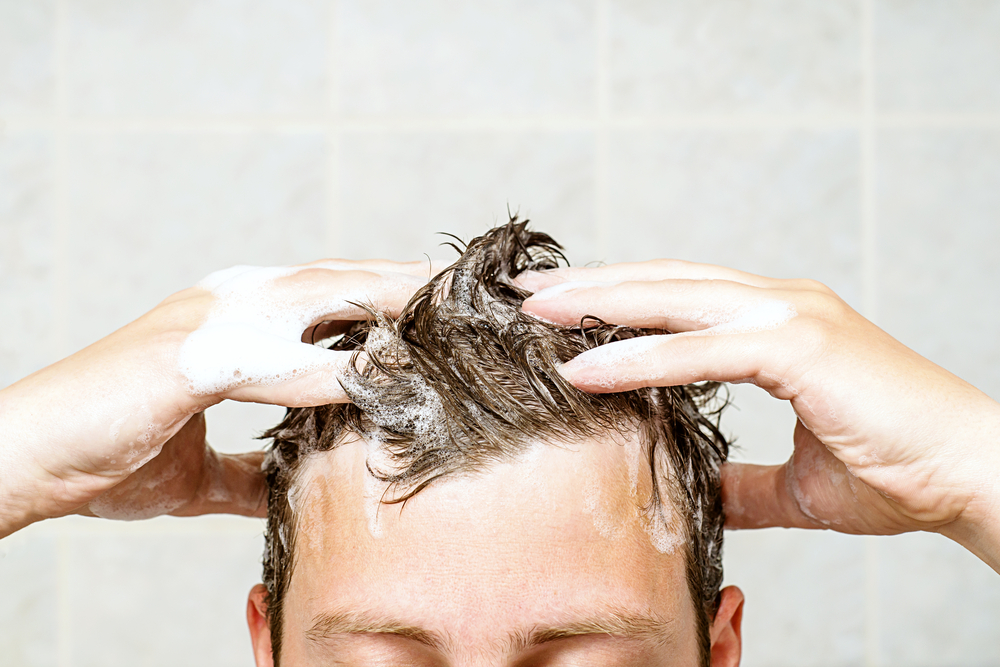
Minoxidil foam works directly on the hair follicles in the scalp, helping to promote hair regrowth- quite literally- at the roots.
All this goodness is crucial for the health of your hair production. Because when your follicles get the support they need, they’re much better equipped to produce healthy hair.
Can Minoxidil foam regrow hair?
So the theory is pretty solid, but how well does Minoxidil actually work?
Minoxidil has been shown in clinical trials to reverse male pattern hair loss, leading to it being approved and licensed in the UK and by the US Food and Drug Administration (FDA) for this very purpose.
According to the best-known study, Minoxidil is effective in over two-thirds of men who use it, provided it’s used regularly and effectively. This effect jumps up to over 90% when combined with Finasteride, which is why we put them both in our Complete Hair Loss Plan.
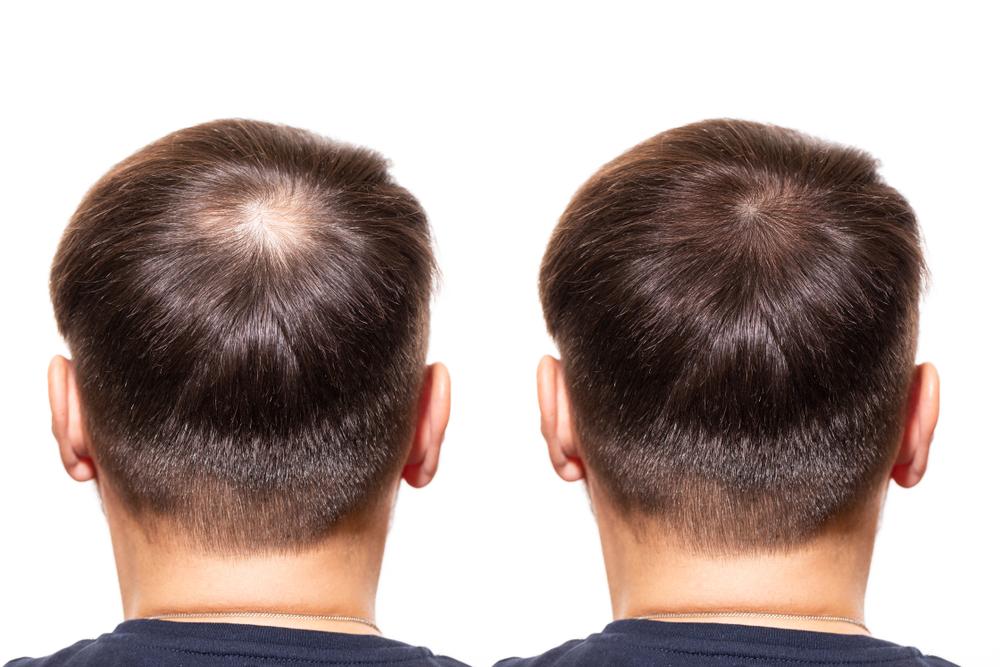
It’s important to follow the detailed directions provided when you get Minoxidil foam, to maximise effectiveness (and minimise side effects) and use it regularly in your daily routine.
It’s also vital to start treatment as early as possible, as Minoxidil can’t reverse hair loss when the follicles have completely degenerated.
What results can I expect?
Minoxidil treatment is a gradual process but, once it gets going, you’ll notice thicker, fuller hair and better coverage. Sticking to your treatment plan is also important in maximising your results.
Months 0-3: Reset phase
For most people, the first few months will bring little visible change. Some shedding is normal and is actually a good sign that your medication is working and your hair growth cycle is restarting.
Months 3-6: Stabilisation phase
After a few months, hair loss will slow and you might start noticing some early hair regrowth and thickening- alongside improved confidence!
Months 6-12: Hair regrowth phase
After around six months of patience, you can finally start to see improved scalp coverage and hair growth as regenerated hairs fill in areas of hair loss.
It’s essential to maintain Minoxidil treatment to prevent further hair loss and maintain your new, improved hair coverage.
Are there any side effects?
While Minoxidil foam is generally very safe, it’s still a medical treatment so has some possible side effects. Before starting it, it’s worth being clear on the risks.
Common side effects of Minoxidil can include:
- Scalp irritation and dryness (usually because of cetyl alcohol in the solution)
- Hair growth in other areas of the body, such as the beard, neck or back (usually when the foam is misapplied and ends up on other skin areas!)
- Swelling on the face, head or hands
- Chest pains
- Dizziness, drowsiness, light-headedness, or headaches
While they sound a little scary, serious Minoxidil side effects are uncommon and are more likely with oral Minoxidil, as opposed to the topical Minoxidil foam. If you’re worried about Minoxidil side effects or have an existing medical condition, please consult a doctor before starting treatment.
Read our article on the side effects of Minoxidil for more information.
Minoxidil foam FAQs
Is Minoxidil foam safe to use?
Yes, Minoxidil is FDA-approved for male pattern baldness and is safe to use in the vast majority of people. As a clinically proven hair loss treatment, if you can use it then you should!
Speak to your doctor before using Minoxidil products if you have:
- Uncontrolled high blood pressure
- Heart disease, circulation disorders or abnormal heart rhythms
- Suffer hair loss from other conditions aside from male pattern baldness
If your hair loss is accompanied by scabs, lesions, or irritation, it’s best not to use it to avoid the pain and prevent excessive absorption into the bloodstream, which can cause side effects.
Minoxidil is only licensed for men aged eighteen and over.
What’s the difference between Minoxidil, Regaine, and Rogaine?
But let’s clear up some confusion. Rogaine is a US brand, manufactured by Johnson & Johnson. In the UK, the same product is sold by a different name: Regaine. Two names for the same product. The really important thing, though, is the active ingredient that powers both brands. That’s Minoxidil.
How do I maximise the hair growth benefits?
It’s important to use Minoxidil regularly, as part of a daily routine. Apply to dry hair and leave it on for at least 4 hours, applying twice a day to get maximum benefits.
Another way to boost the effectiveness of Minoxidil is to combine it with Finasteride, which works on the hormonal part of male pattern hair loss.
Ultimately, it’s important to get started as early as possible. Get in contact with a Manual clinician to explore your options and get a tailored plan to suit you.
Key takeaways
Minoxidil is a safe, effective hair loss treatment licensed for male pattern baldness. Applied topically as a foam, it boosts blood flow to hair follicles helping to halt hair loss and promote hair regrowth. While it isn’t suitable for everyone, Minoxidil foam is a great option and is most effective when combined with Finasteride, as in our Complete Hair Loss Plan.





